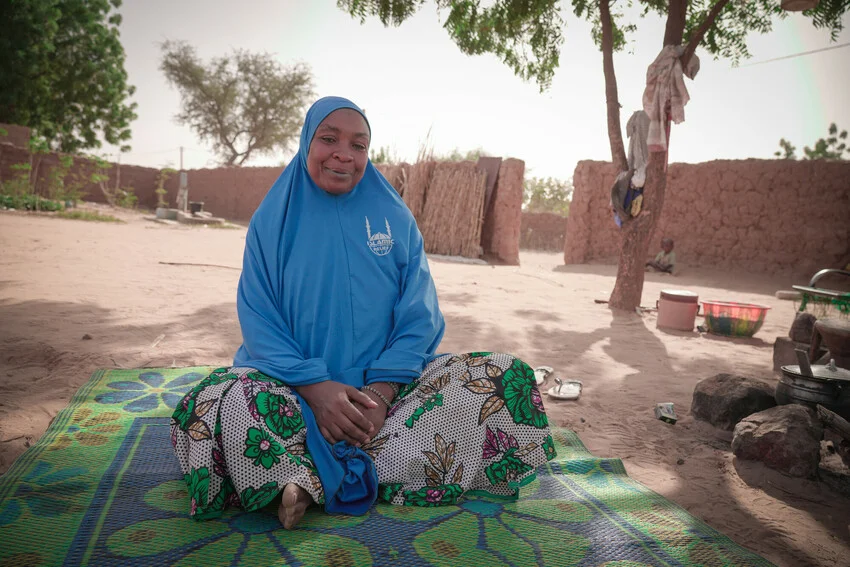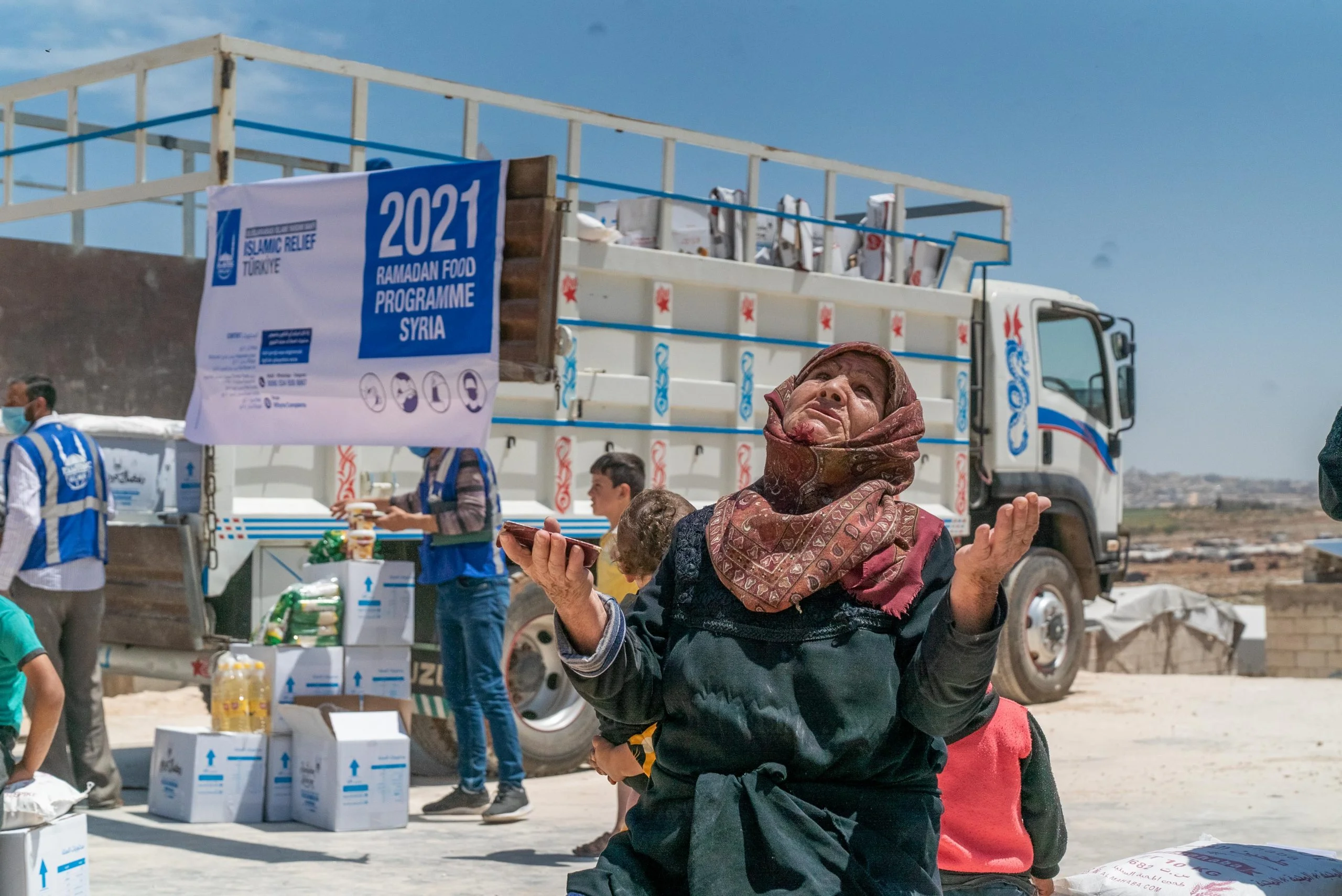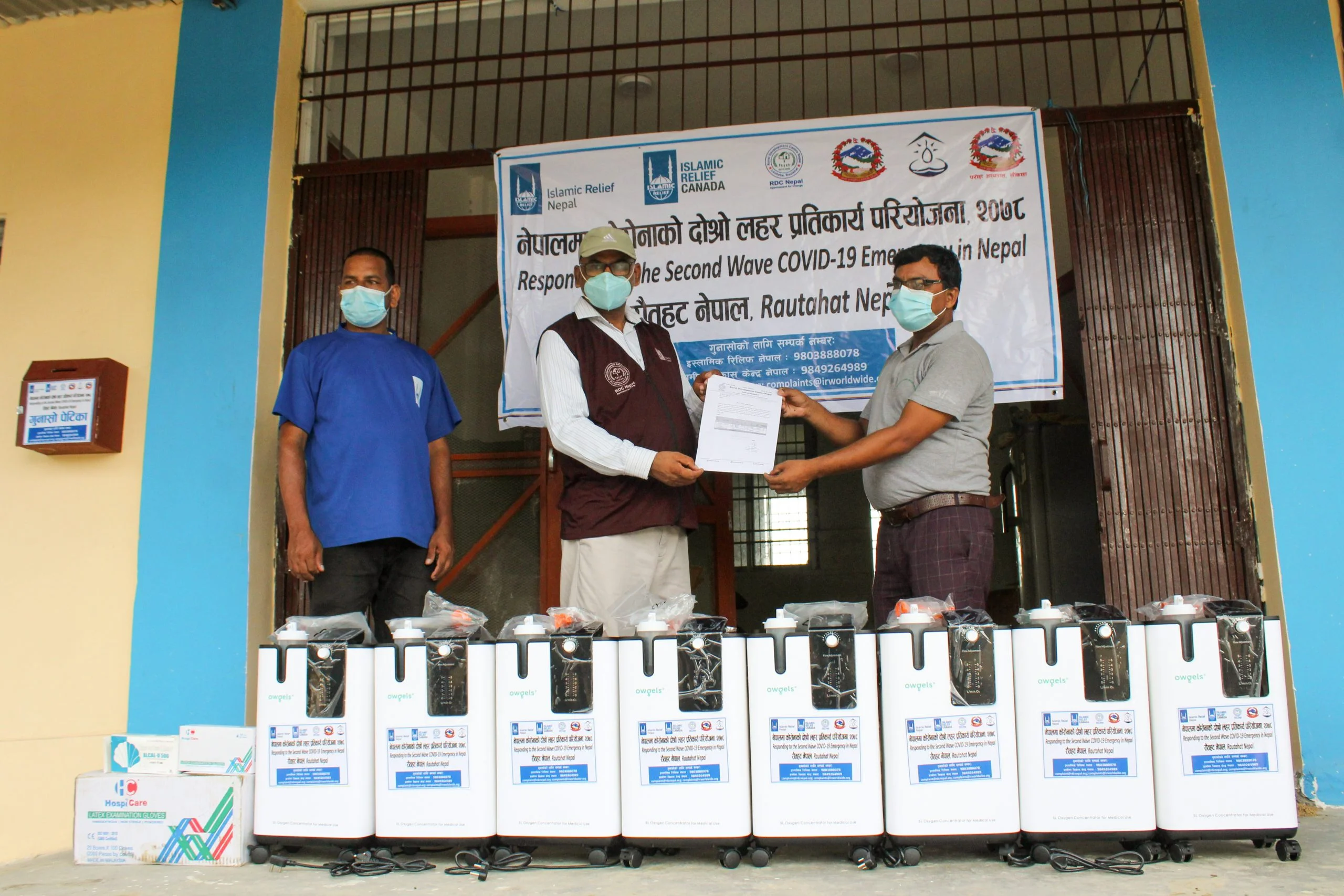Today marks the 38th anniversary of the founding of Islamic Relief, which has grown into a leading international charity working across continents to alleviate the suffering of millions of people.
“Alhamdulillah, today we mark 38 years of Islamic Relief’s life-saving and life-changing work around the world,” says Waseem Ahmed, Chief Executive of Islamic Relief Worldwide.
“The world of 2022 feels very different to when our work began 38 years ago. In this time, we have faced extraordinary challenges and celebrated some remarkable achievements. One thing has remained constant: the generosity of our supporters, without whom our work would not be possible. Thank you, as always, for your incredible support.”
To mark this milestone and celebrate the work we do, we’re sharing 38 facts about Islamic Relief. See how many you know!
1. Founded in response to the 1984 famine in Sudan – Our founders, a group of medical doctors and activists, were moved by the suffering caused by the 1984 famine in Sudan. Working with an enthusiastic team based out of a small office in Birmingham, they raised £100,000 to help those affected.
2. 88p of every pound donated spent on helping those in need – For every £1 donated to Islamic Relief, we spend 88p directly on helping people in need. The remainder goes towards raising more funds and essential administrative costs to support the professional delivery of everything we do.
3. We work in more than 40 countries – From our beginnings in the United Kingdom, Islamic Relief has expanded to deliver aid and fundraise in more than 40 countries across Europe, Africa, Asia, the Middle East, and North America.
4. 2020 was a record year for Islamic Relief – The support of our generous donors saw Islamic Relief’s income rise to a staggering £149 million in 2020, meaning that we were able to help 13.8 million people in 39 countries – a record number – as the world grappled with the coronavirus pandemic.
5. Inspired by faith – Islamic Relief’s faith-based approach informs the work we do to help people in need. Inspired by the Islamic faith, we envisage a caring world where communities are empowered, social obligations are fulfilled, and people respond as one to the suffering of others.
6. Committed to long-term response – Even when long-running crises including those engulfing Syria and Yemen drop from the headlines and public consciousness, Islamic Relief is committed to continuing its work to help those affected rebuild their lives. In 2020, 2.3million people in Yemen relied on our food aid, while we spent £30million to help 1.25 million people in Syria.
7. Supporting more than 80,000 orphaned children – Islamic Relief’s Orphan Sponsorship Programme, established in 1986, helps support children across several continents. The assistance of our generous sponsors helps ensure children can attend school and that families have their basic needs met.
8. Working to tackle climate change – Climate change is one of the greatest moral, social and environmental challenges facing humanity. Islamic Relief works to help communities and governments adapt to and mitigate climate change, while also working to reduce our own carbon footprint.
9. Qurbani programme feeds millions each year – Islamic Relief’s qurbani programme reached more than 3.1 million people last year. Our criteria ensure that meat goes to those most in need during the first 10 days of Dhul Hijjah, one of the holiest periods in the Islamic year.
10. Certified against the CHS – In 2021, Islamic Relief was recertified against the Core Humanitarian Standard (CHS), a rigorous global standard for humanitarian work. We are one of only 5 UK-based charities to have been certified, and to date we are the only UK-based faith-inspired charity to hold the certification.

11. Standing up for gender justice – Islamic Relief is committed to standing up for gender justice. In 2018, we began work on a ground-breaking Declaration of Gender Justice in Islam which aims to help tackle inequality and injustice against women and girls from an Islamic perspective.
12. Improving financial inclusion for all – Since 1994 we have provided Islamic microfinance to people who would otherwise be excluded from financial services. With our interest-free Shariah-compliant loans, entrepreneurs start up or expand small businesses to lift themselves out of poverty. So far we have circulated over £60 million in social investment.
13. First Muslim non-governmental organisation to receive UK government funding – In 1994, we received £180,000 to fund a training centre in North Kordofan, Sudan.
14. Recycling clothes to support projects – Islamic Relief established TIC International, a clothing recycling company, in 1993 after receiving an influx of clothes in response to emergency appeals. The Birmingham-based firm now manages a national chain of charity shops, helping with fundraising efforts.
15. Protecting families during winter – Storms, blizzards and freezing temperatures heap challenges on those living in damaged shelters, or with no shelter at all. Every winter, Islamic Relief helps those at risk over the colder months with food, fuel and other winter essentials.
16. Registered with the UK Charity Commission for more than 30 years – Since 1989, Islamic Relief has been registered with the UK government body that regulates charities in England and Wales. This helps ensure donors and other members of the public can trust the work that we do.
17. Supporting those affected by HIV/AIDS – Islamic Relief pioneered discussions on Islam and HIV/AIDS at a 2007 conference in South Africa, and we continue to support those affected by the HIV virus in the country and elsewhere through prevention programmes, support groups and youth education initiatives.
18. 25 years of life-saving work in the Occupied Palestinian Territory – Many Palestinians depend on external aid for day-to-day survival. This year marks 25 years of Islamic Relief’s work in the Occupied Palestinian Territory, where we work to reduce suffering through emergency response and supporting people to build brighter futures.
19. Signatory to the Red Cross Code of Conduct – In 1999, Islamic Relief signed the Red Cross Code of Conduct, committing to this international standard of how to provide aid to people affected by emergencies in a non-biased manner. Humanity, neutrality, impartiality, and independence are the core principles.
20. Helping refugees – Islamic Relief works to support refugees and displaced people around the world. At the peak of Europe’s ‘refugee crisis’ in 2015, we provided food packs in Macedonia, hygiene kits and blankets in Germany, advice and translation services for new arrivals in Greece and Italy, and short-term shelter and warm clothing in Sweden.

21. Responding to disasters – Islamic Relief has decades of experience responding to natural and man-made disasters ranging from earthquakes, floods and tsunamis to conflict. Each year, we rapidly respond to emergency situations, striving to meet the immediate needs of those affected, while working to develop a long-term response.
22. First to deliver aid to Grozny – When war broke out in Chechnya in 1995, Islamic Relief was the first relief agency to deliver aid to the area’s capital, Grozny. We supplied food, blankets, clothes, and medicine to those affected by the fighting.
23. Hundreds of thousands helped after floods in Pakistan – The worst floods in living memory struck Pakistan in 2010, prompting Islamic Relief to launch a major relief and reconstruction operation. Our work benefitted some 428,000 people in more than 580 villages.
24. Recognised by the European Commission – In 2002, Islamic Relief signed a Framework Partnership with the European Commission’s Humanitarian Aid department. The move recognised our capacity to deliver aid to a high standard.
25. Thousands raised during Bosnia appeal – Working with the UK-based newspaper The Independent, Islamic Relief raised £37,000 in 1993 to support aid efforts throughout the war in Bosnia, including during the Siege of Sarajevo.
26. Striving to ‘Do No Harm’ – Islamic Relief is committed to the principle of ‘Do No Harm’. We strive to ensure our programmes are appropriate for the communities we serve, and to understand and minimise any potential negative impacts of our work.
27. More than 20 years of the International Waqf Fund – In 2000, we created the International Waqf Fund to implement waqf projects, reviving the great Islamic tradition of sustainable charitable investments alongside charitable giving. The fund helps to provide money to feed families during Ramadan, improve water and sanitation, and support health and nutrition, among other endeavours.
28. On the ground in conflict zones – Islamic Relief works to support those affected by conflict around the world. We respond to emergencies and carry out long-term projects to help communities rebuild their lives. In 2003 we were one of the few international aid agencies assisting people in Iraq when war broke out, providing £9 million worth of aid.
29. Providing assistance based on need – We support those in need regardless of their religion, race or sexual orientation, and do not discriminate in any way. Islamic Relief works to ensure that those we help know our assistance is unconditional, and that we welcome feedback and complaints.
30. Member of the UK’s Disaster Emergency Committee (DEC) – Islamic Relief was the first Muslim charity to join the DEC, an umbrella organisation which brings together 15 leading UK-based aid charities in times of crisis to raise funds. We joined in 2005, the same year we launched our biggest-ever operation in the United States, supporting those affected by Hurricane Katrina. We’re part of the DEC’s current appeal to alleviate hunger in Afghanistan.

31. Continuing our work in Afghanistan – Islamic Relief has worked in Afghanistan for more than 18 years. We provide a lifeline in the country, which is gripped by humanitarian crisis triggered by drought, conflict, Covid-19 and political change. We are on the ground and delivering aid in 5 provinces, serving vulnerable populations including women and girls, the older people and people living with disabilities.
32. Adapting to a global pandemic – Islamic Relief has adapted projects and programmes to the new reality of the Covid-19 pandemic. In 2020, we ran 122 Covid-19 prevention and support projects, reaching 1.5 million people. We also launched an ongoing Coronavirus Appeal, to help provide health and hygiene support to vulnerable people around the world.
33. Part of historic interfaith collaboration – In 2014, Islamic Relief began a partnership with the Lutheran World Federation (LWF) in the first collaboration of its kind between global Islamic and Christian humanitarian organisations. In 2022 we are marking World Refugee Day with a joint conference with LWF and our other close faith-based partner HIAS on ‘Welcoming the Stranger’.
34. Advocating for an end to FGM/C – Female genital mutilation and cutting (FGM/C) is practised in many areas of the world and affects the physical and mental health of millions of women and girls. Islamic Relief’s work includes engaging with local scholars to educate communities to help bring an end to the practice.
35. Committed to localising aid – As well as assisting those in need directly, Islamic Relief is committed to localising aid by helping local partner organisations build their capacity. They could be first responders with a deep understanding of community needs, or a smaller non-governmental organisation working on one particular challenge in a country or region.
36. Working to end early and forced marriage – Our faith perspective gives Islamic Relief a special role in working to end early and forced marriage, which affects millions of girls each year. We believe early and forced marriage violates God-given human rights as well as the sanctity of marriage and family in Islam. We are committed to working with faith leaders to change harmful cultural norms.
37. Ensuring those with disabilities are not left behind – Islamic Relief recognises that people living with disabilities are often at a greater risk in times of disaster, conflict, or great need. We are working to ensure our projects and programmes are accessible to everyone that needs our help by embedding accessibility into the planning and design stages, and creating clear guidelines developed with people living with disabilities.
38. There’s so much more to do – Over the last 38 years, the generosity of our donors has made it possible for Islamic Relief to help millions of people around the world. Sadly, humanitarian crises continue to grow in number and severity, leaving more people in need of assistance.
Please help Islamic Relief continue our vital work. Donate today.










